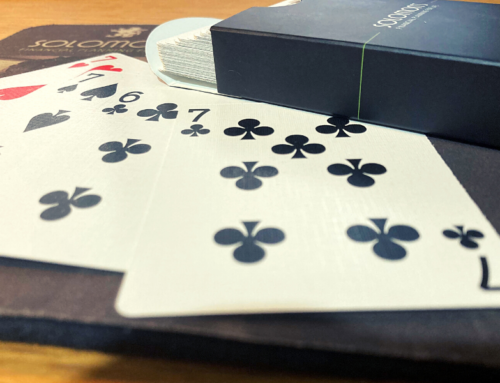Fear and Greed
I suspect at some level everyone has “issues” with money and these tend to play into some fundamental concerns that we all have the capacity to display – fear and greed. I may be rather naïve but I like to think that the “proper” newspapers (those that make an attempt at investigative journalism) are there to expose deception by informing and educating, equipping us all to make better informed decisions. So it was disappointing to read an article in the Guardian this weekend, which seemed to play into the two dynamics that are fuel to anxiety.
Lord of the ISA?
It was an article about John Lee, a Liberal Peer, who it reports has made £1m from ISAs. Set aside the facts are scant and not verified; he poses a particular investing theory. His approach is essentially a buy and hold strategy, though rather than use funds, he purchases individual shares, rarely trading. “He says he always goes for genuine quality smaller-company UK shares”. This is an investment strategy – there are probably almost as many investment strategies as there are investors. The pros and cons of it are not explored, other than to imply that this is what got his ISA portfolio to £1m.
ISAs, PEPs and some real numbers
So how about some hard facts? PEPs were introduced in 1987 at the time with an allowance of £2,400. By 1999 the PEP allowance (£9000 at the time) was replaced with a lower ISA allowance of £7,000. This only began to rise in 2009 and is now linked to inflation. Aside from possible TESSA allowances and windfall shares from various sell-offs including Building Societies, since 1987 it has been possible to invest £212,080. If these investments had grown at 7% a year (no investments grow in a straight-line) they would be worth approximately £546,388. 7% isn’t an unreasonable annualised return since 1987. The inflation adjusted return (“real return”) for the FTSE All Share from 1987 to the end of 2012 was 5.3% a year with UK RPI at 3.6% (so a gross annualised return of 8.9%).
Risk isn’t simply a game
So a couple of points. We don’t know from the article, if Lee has achieved a return of virtually double this (from his strategy) or if he has simply used his wife’s allowance as well. If it’s the latter, then I guess there isn’t much of a story, if he has doubled the return then we can all marvel at his genius right? Well no. Lee has taken some investment decisions that are considerably outside of the range of the typical, ordinary investor, which may be all well and good for him as I assume that he can afford to lose the money, most cannot and as a result have a more diversified portfolio of holdings to suit their ability to cope with risk, or more accurately loss. Those with large resources can, in theory cope far better with the volatile nature of stockmarkets. Yes it is true that anyone can do it (provided they have the money to invest and can leave it alone for 26 years) but in practice his strategy is not appropriate for probably 98% of people that I meet. He has also been investing for 50+ years, and invests a lot of time in following the markets and various companies.
Success proves skill right?
Lee appears to have no time for Fund Managers, yet it is very hard to believe that most people have either the time or knowledge to research small UK companies. This knowledge can be learned, but it requires time and effort and most people are simply not interested, it’s not as easy as is being suggested – otherwise all investment managers would be achieving similar results right? Professionals with this as their full-time job. To be blunt, I’m not really bothered if he is a genius investor or not, the concern is simply that the article makes investors question why their ISA portfolio isn’t worth £1m and the inference is that this is due to buying funds instead of individual shares. There is no suggestion that this might be a high risk strategy, it’s simply playing the envy card that for Lord Lee this has worked out rather nicely so far. This is simply another tale of “the grass is greener”. Even if higher returns have been achieved, there is a high degree of luck in the result – not needing to touch the money for 26 years for starters. Call me a cynic, but the fact that he has a book out may be nothing more than a red herring and anyone with a particular investment strategy, whether it’s buying small companies, art or property has a vested interest in getting others to do the same, the increased demand pushes their “portfolios” higher as others seek to copy this “winning strategy”. If investing is so easy, why are so few able to even outperform the market over the long-term? Questions for another day.
Dominic Thomas: Solomons IFA




